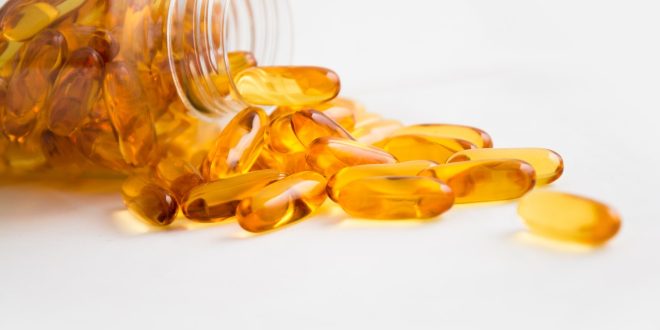There are millions of women who rely on supplements for optimal health. Know, however, that staying healthy is a unique journey for all of us that requires different actions. There are a number of vitamins and minerals our bodies need to function properly. Unfortunately, we don’t have the space to discuss them all in one article, but we can talk about several important for optimal health. Of course, everyone is different and we all have varying needs. I recommend that you talk to your health care provider about what supplements are the most beneficial for your specific health needs. Your doctor might also order a lab test to verify vitamin/mineral levels before you supplement.
Here are 5 supplements for optimal health you can add to your health routine if needed.
Vitamin D
According to the NIH, vitamin D deficiency runs overall about 42% among US adults. Though it tends to be much higher in some races and areas. Growing evidence suggests that being deficient in vitamin D could be linked to health problems like chronic illness, cardiovascular disease, and even cancer. The body produces vitamin D as a hormone, but it is also a nutrient found in plant and animal-based foods. Commonly known reasons vitamin D is important are bone health, absorbing and retaining calcium and phosphorus, and reducing inflammation.
A good way to obtain vitamin D is to get outside in the sun daily. However, this isn’t always possible or safe for some people with sensitive skin. Doctors often recommend eating foods rich in vitamin D or taking a daily supplement for best results. Try eating foods like fish, eggs, and other animal products. You can also supplement with D2 or D3. Some research suggests that D3 is better because it is the type of D that the body naturally produces.
Vitamin A
Most commonly known to be present in carrots, vitamin A (retinoid) is essential for good vision, healthy skin, and a strong immune system. First, it helps to keep our eyes healthy by providing the substance for maintaining the surface of the eye and aiding in night vision. Additionally, vitamin A helps to keep our skin healthy. Skin needs assistance to retain moisture that helps prevent dryness and premature aging. Finally, vitamin A is essential for a strong immune system. It boosts our defenses by helping us produce white blood cells. These are needed to fight off any type of infection that might be dangerous otherwise.
Though it can be found in foods like carrots, sweet potatoes, winter squashes, spinach, eggs, cantaloupe, and kale, you might not be getting proper doses from your food alone. Supplementation is one way to ensure you get enough, especially if you don’t eat any or low amounts of the above foods.
Vitamin C
 Vitamin C is an important nutrient for many reasons. It helps to boost the immune system, fight off infection, and heal wounds. Additionally, vitamin C is important for keeping skin healthy. It helps to produce collagen, which gives skin elasticity- the component of young-looking, firm skin.
Vitamin C is an important nutrient for many reasons. It helps to boost the immune system, fight off infection, and heal wounds. Additionally, vitamin C is important for keeping skin healthy. It helps to produce collagen, which gives skin elasticity- the component of young-looking, firm skin.
Vitamin C is also important for bone and teeth health. You can get a good dose of it from citrus fruits like oranges and lemons, as well as from vegetables like broccoli and kale. That said, if you don’t eat a lot of those foods, you could become deficient in vitamin C. The best way to ensure that you’re getting enough is to take a quality daily supplement. I prefer the liposomal versions myself. And I also take higher doses when I feel a cold/flu coming on.
Calcium
Calcium is an essential nutrient to maintain strong bones and teeth. Even if you have false teeth or Dental Implants, your oral health is still reliant on calcium, as bones still support these appliances. Additionally, calcium is vital for healthy blood pressure because it helps to regulate blood vessel contraction. Finally, calcium is also one of the vital minerals that promote a healthy heart. It’s a powerhouse that helps prevent artery hardening and heart disease.
It can be found in dairy products like milk, cheese, and yogurt. You can also find good absorbable calcium in broccoli, spinach, kale, dried figs, soybeans, and oranges. While you can get some calcium from food sources, a daily supplement might be needed to bring you to optimal health, depending on things like age, activity level, medical history, etc.
Omega-3
 If you’re looking to achieve optimal health, Omega-3 is an important nutrient for many reasons. First, it helps to reduce systemic inflammation that can wreak havoc on your body and make you chronically ill. It also can improve heart health, as well as boost brain function- two things I won’t take for granted.
If you’re looking to achieve optimal health, Omega-3 is an important nutrient for many reasons. First, it helps to reduce systemic inflammation that can wreak havoc on your body and make you chronically ill. It also can improve heart health, as well as boost brain function- two things I won’t take for granted.
Omega-3 is found in fish like salmon and tuna, as well as in walnuts, flax seeds, and chia seeds. While food offers some omega-3, taking a quality supplement might make it easier to consume, especially if you don’t eat fish.
In conclusion, we need many vitamins and minerals to maintain health, but, honestly, you likely don’t need to supplement them all. That is if you eat a balanced diet and live a healthful lifestyle. However, pay attention to vitamins D, A, C, calcium, and omega-3. Make sure you get enough of these, whether through diet or supplementation. Remember, consult your doctor to get advice about what foods and supplements are best for optimal health.
**** This post is strictly informational and is not meant to replace the advice of your healthcare provider. Women’s lifelink, its owners, administrators, contributors, affiliates, vendors, authors, and editors do not claim that this information will diagnose, treat, or improve any condition or disease.
 Women's Life Link Be Well, Be Happy, Be YOU!
Women's Life Link Be Well, Be Happy, Be YOU!




